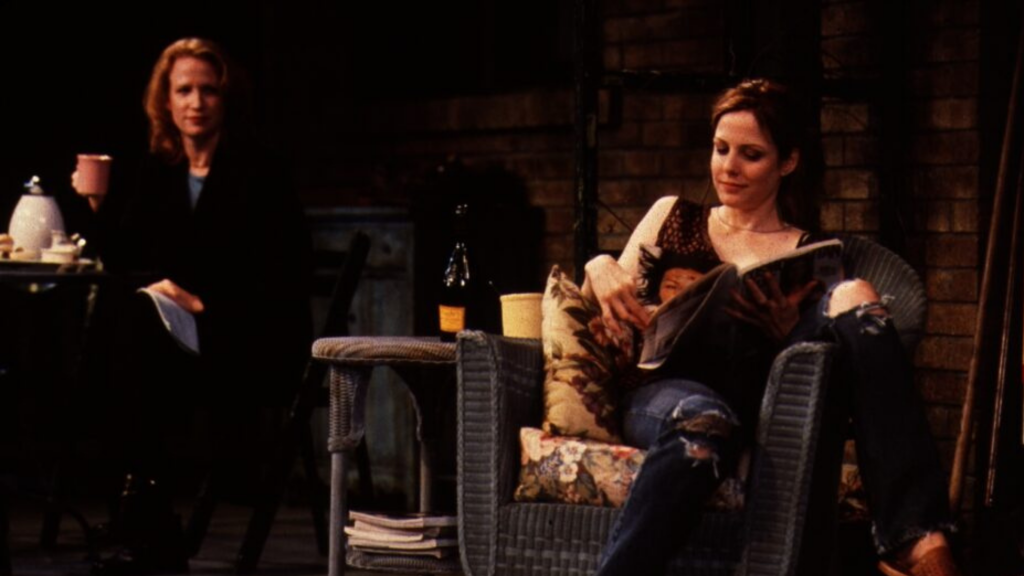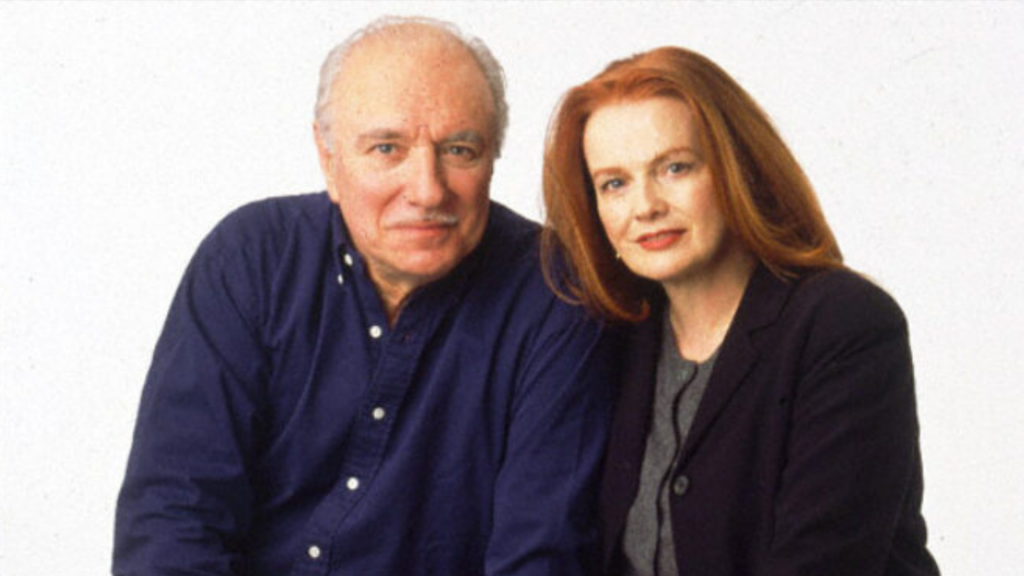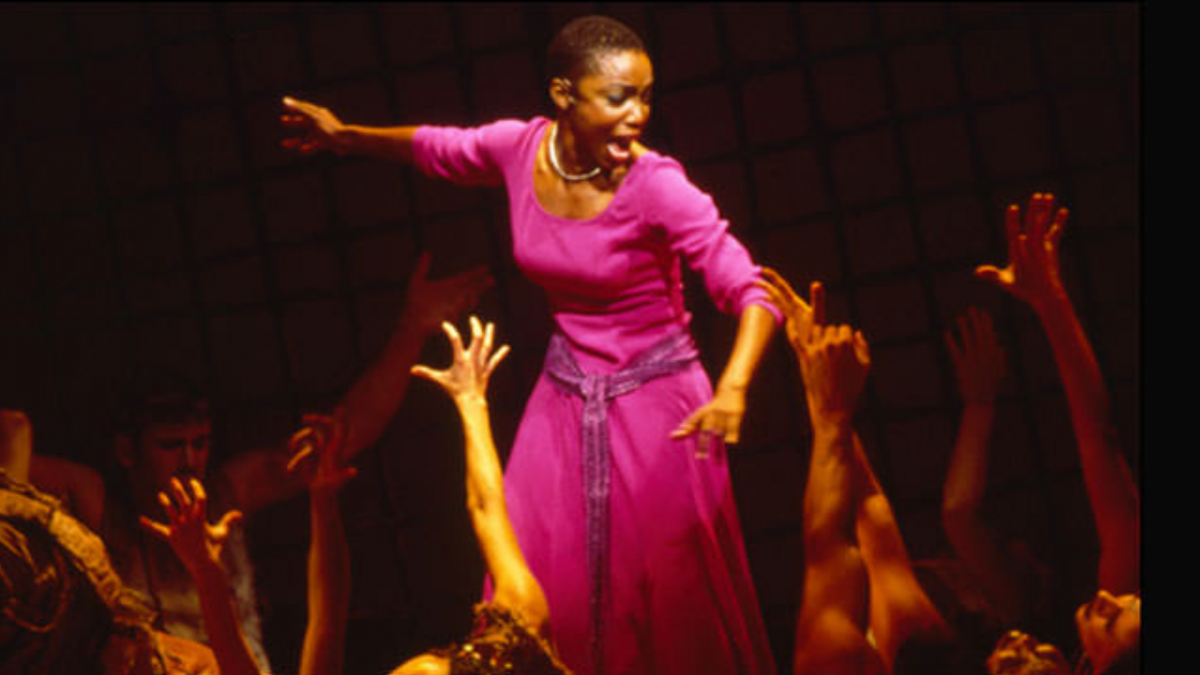As Broadway looks ahead to its next big season of revivals and fresh voices, it’s worth pausing for a look back to the year 2000, when a bold new generation of shows helped shape what modern Broadway would become. Now, a quarter-century later, those musicals and plays are celebrating their silver anniversaries, and many remain as relevant, resonant, and revolutionary as ever. From Aida and Contact to Proof and The Full Monty, the class of 2000 marked a turning point in how Broadway told its stories with pop scores, dance-driven storytelling, and emotionally intimate plays that expanded the definition of what a hit could be.
Aida
When Aida opened at the Palace Theatre in March 2000, it redefined the “pop Broadway musical.” With music by Elton John and lyrics by Tim Rice, the show fused pop, rock, and classical influences into a sweeping retelling of the classic story of forbidden love between an enslaved Nubian princess and an Egyptian soldier. Starring Heather Headley in the titular role in a breakout, Tony-winning performance, Aida ran for more than 1,800 performances and left a cultural imprint far beyond its Broadway run, inspiring international productions and even a rumored revival. Its influence still shows up today in the era of pop-driven musicals like & Juliet and Six.
Contact
Few shows captured Broadway’s imagination quite like Contact. Conceived by Susan Stroman and John Weidman, this dance musical blurred the line between theatre and ballet, using existing music instead of an original score. The production, which moved to Broadway after a successful Off-Broadway debut at Lincoln Center, went on to win the 2000 Tony Award for Best Musical. It was a groundbreaking moment for a show told almost entirely through movement. Stroman’s kinetic storytelling paved the way for other dance-forward works like Movin’ Out and The Times They Are A-Changin’, and her influence continues today in revivals like Crazy for You and new choreography-driven projects across Broadway like 2024 Tony Award nominee Illinoise.

Proof
David Auburn’s Proof, which premiered at the Manhattan Theatre Club before transferring to Broadway later that year, became one of the defining plays of the early 2000s. Its mix of intellectual intrigue, family tension, and emotional vulnerability won both the Tony Award for Best Play and the Pulitzer Prize for Drama. Twenty-five years later, Proof is returning to Broadway this season starring Ayo Edebiri, Don Cheadle, Jin Ha, and Samira Wiley — a timely revival for a play that still feels urgent in its exploration of genius, grief, and trust. Its original run also made stars of Mary-Louise Parker and Ben Shenkman, solidifying MTC’s reputation as a launching pad for smart, emotionally rich new writing.
The Full Monty
Before Kinky Boots and Billy Elliot, there was The Full Monty — the blue-collar musical that brought heart, humor, and a little striptease to Broadway. With a score by David Yazbek and a book by Terrence McNally, the show told the story of out-of-work steelworkers in Buffalo who decide to form an unlikely strip act. Opening at the Eugene O’Neill Theatre in October 2000, The Full Monty was an instant crowd-pleaser and earned ten Tony nominations. Its blend of laughter, working-class realism, and sincerity set a tone for the decades of “feel-good” musicals that followed.
Seussical
A fantastical mash-up of Dr. Seuss stories, Seussical was a bright, family-friendly entry into the 2000 season. Written by Lynn Ahrens and Stephen Flaherty (Ragtime), it brought together Horton the Elephant, the Cat in the Hat, and a colorful ensemble of Whoville characters in a whirlwind of rhymes and rhythm. While its initial Broadway run was short-lived, Seussical found massive success in schools and community theaters, becoming one of the most-performed shows in the U.S. Its enduring popularity speaks to the show’s charm — and to the timelessness of Seuss’s message about imagination and inclusion.

Dirty Blonde
Claudia Shear’s Dirty Blonde, directed by James Lapine, explored the life and legend of Mae West and the way her image continued to resonate decades later. With Shear herself in the leading role, the 3-hander offered a fresh, feminist take on celebrity and identity. Dirty Blonde earned five Tony nominations (and is one of the few plays in Broadway history to have its entire cast receive a Tony nom) and remains a benchmark for actor-driven, biographical storytelling on Broadway. Its influence can be felt in later pieces like I Am My Own Wife and Tina: The Tina Turner Musical — shows that blur biography and performance to reveal something deeper about fame and self-invention.

Copenhagen
Michael Frayn’s Copenhagen brought physics, philosophy, and moral ambiguity to Broadway — and made it thrilling. The play dramatized a 1941 meeting between physicists Niels Bohr and Werner Heisenberg, turning a scientific mystery into a riveting human drama. The Broadway production won the 2000 Tony Award for Best Play and showcased the power of intellectual theater at a time when musicals often dominated the conversation. Its success paved the way for other smart, idea-driven plays — from The History Boys to Oslo — that prove audiences will lean in when the writing sparks curiosity.
